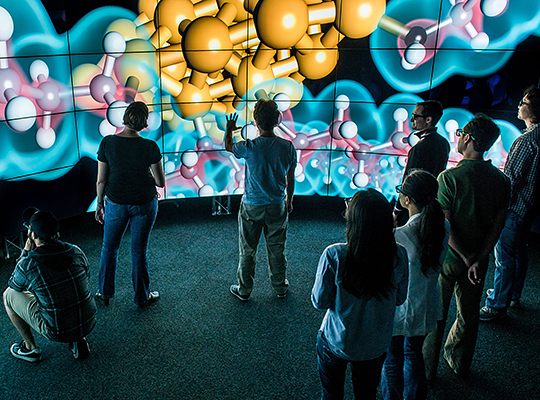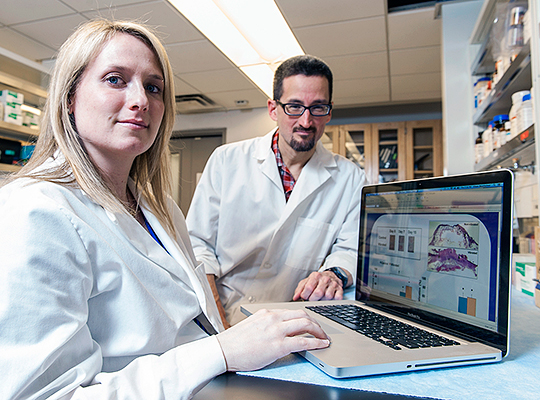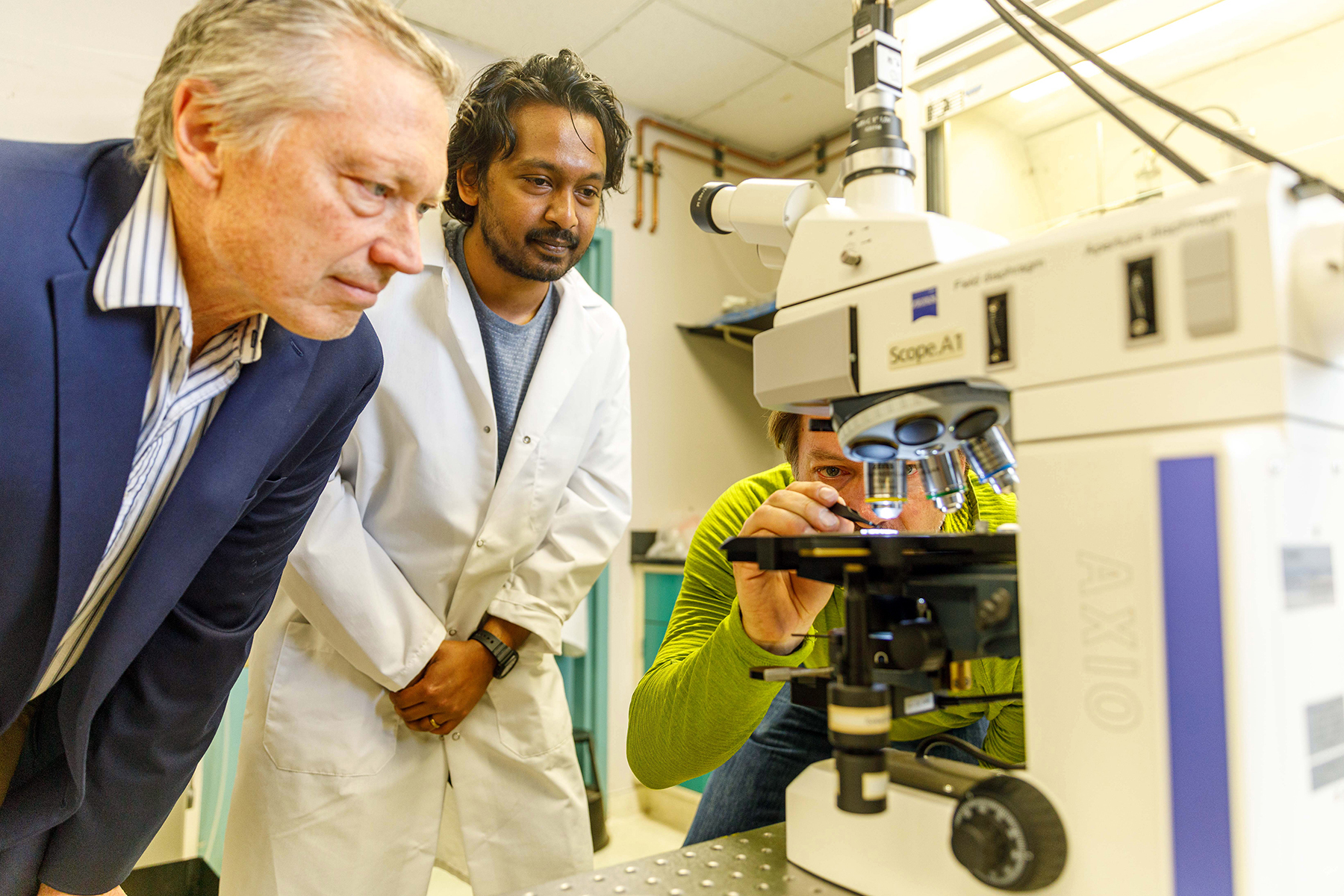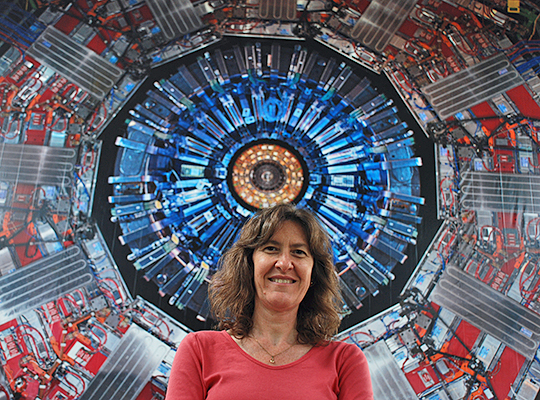University of Illinois Chicago
Research Impact
Research at UIC finds the answers that transform lives
Whether it’s discovering how early drinking affects the brain into adulthood, creating functional artificial leaves or determining why intermittent fasting works to lose weight, University of Illinois Chicago researchers improve the health and well-being of communities both urban and rural, local and global.
Economic impact

By almost every measure, UIC is a key driver in the economic vitality of the city and the state.
UIC leaves its mark on the city and state as a top employer in Chicago, by providing charity health care to under-served populations, and by increasing the amount of royalties earned on UIC-created inventions. UIC has consistently exceeded the national average in royalty revenue generated through the commercialization of research with over $30 million in royalty revenue in FY 2022. This success builds on the continued growth and expansion of UIC’s innovation and commercialization portfolio despite the ongoing COVID-19 pandemic.
UIC strives to expand its impact by supporting the programming and facilities that enable our faculty and students to innovate in the lab, classroom and beyond. The Proof of Concept Awards program aims to accelerate the commercialization of technologies developed at UIC. The Health Technology Incubator (HTI) provides lab and office space to UIC innovators looking to validate technology, convert innovation into products, and prepare projects for the marketplace.
UIC is a partner of the Discovery Partners Institute (DPI), a collaborative education and research institute located in Chicago led by the University of Illinois System. UIC faculty are working collaboratively with faculty from across the system and other stakeholders to develop a vision for research and teaching activities at the DPI.
As a hub of the Illinois Innovation Network (IIN), UIC is working collaboratively with other public universities and community colleges across the state to drive innovation, workforce development, and economic growth. UIC students and faculty in Chicago and at our regional campuses in Peoria, Rockford and the Quad Cities are providing innovative education and clinical services, conducting cutting-edge research, and developing new programs to support entrepreneurs to help spur economic development.
Impact on health and wellness

Research carried out by UIC scientists has led to improvements in health and well-being. Translating research into action is part of UIC’s legacy.
HIV medication adherence is crucial for reducing viral load and lessening the risk that the virus will be passed to another person. But consistent adherence can be difficult, which is why researchers at UIC have developed an avatar-based app, with built in medication reminders and educational modules, that functions in the privacy of a user’s own phone.
Biopsies can be frightening and painful, but one day they may be performed with a simple blood tests thanks to a new microfluidics device that can separate cancer cells from blood. The device has the potential to enable faster cancer diagnoses and reduce stress for patients.
Why do Hispanic people tend to live longer even though they carry a higher burden of certain diseases such as cardiovascular disease and diabetes compared to other populations? Getting to the bottom of the so-called “Hispanic paradox” is what researchers in the Institute for Minority Health Research hope to achieve with funding from the NIH for the Hispanic Community Health Study/Study of Latinos- the largest-ever study of this population. UIC os one of four field centers. The others are in San Diego, the Bronx and Miami.
Impact on policy

Research conducted at UIC has a strong and enduring influence on the development of public health and social policies that improve the quality of life for millions of Americans.
Investigators in UIC’s Institute for Health Research and Policy and Jane Addams College of Social Work have:
- changed the way we eat
- focused attention on the impact of incarceration on children and families
- alerted policy makers to the need for regulations on e-cigarettes to prevent their sale to children
- improved access to programs that keep seniors fit, strong, independent and out of hospitals.
From informing federal nutrition and wellness policies to restrict the availability of high-sugar, high-calorie snacks and beverages in schools, to investigating how raising the legal age for purchasing tobacco products from 18 to 21 could cut down on the number of new teen and young adult smokers, researchers at UIC’s Institute for Health Research and Policy provide the insights, data and analysis sought by national and local policy makers to address complex public health issues.
Studies conducted by faculty in UIC’s Jane Addams Center for Social Policy and Research have led to improvements in access to mental health services for incarcerated youth, given seniors a framework for choosing assisted living facilities, and supported mothers with substance abuse to better parent their children.

Inventor of the Year
Michael Caffrey and Igor Paprotny won the UIC Inventor of the Year award for creating a device that can detect SARS-CoV-2, influenza, RSV and other pathogens. The technology could dramatically improve disease surveillance for public health as well as research on how viral particles move through the air.
Advancing scientific knowledge

At UIC, researchers are at the forefront of scientific and medical advancement, grappling with issues that affect our view of the universe. UIC’s location in the heart of Chicago gives faculty and students the unique opportunity to collaborate with national laboratories, such as Argonne National Laboratory and Fermi National Accelerator Laboratory, and other top research universities.
UIC researchers, along with the U.S. Department of Energy are working on projects to understand the catalytic processes which could benefit many energy storage and conversion technologies, such as fuel cells, lithium-air batteries, supercapacitors and catalyst materials.